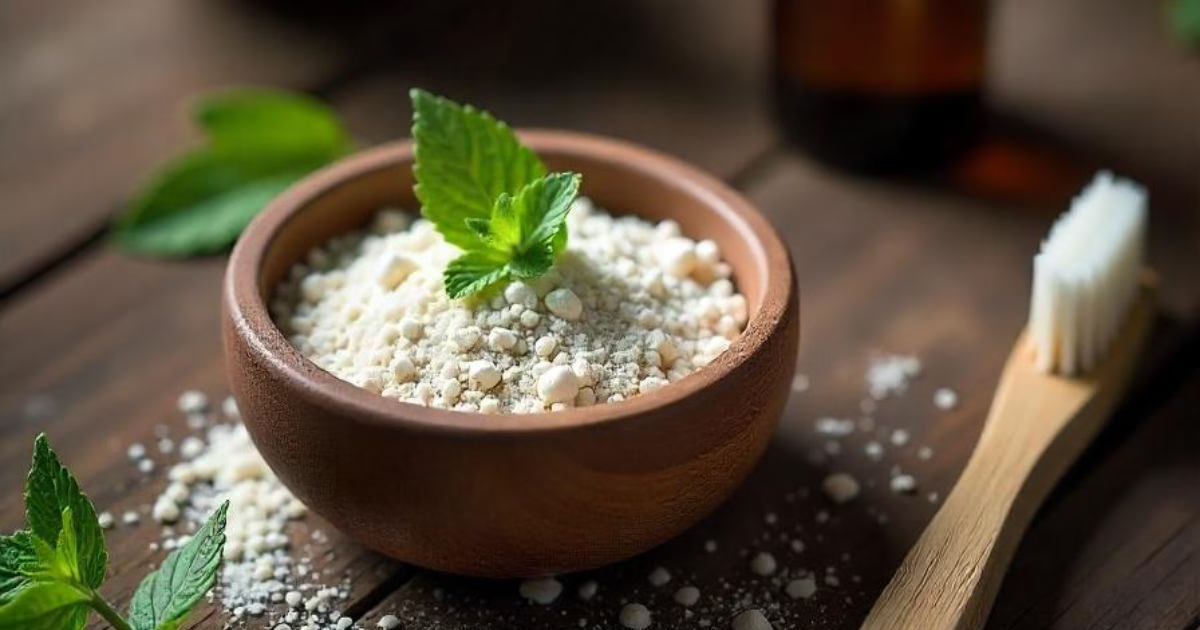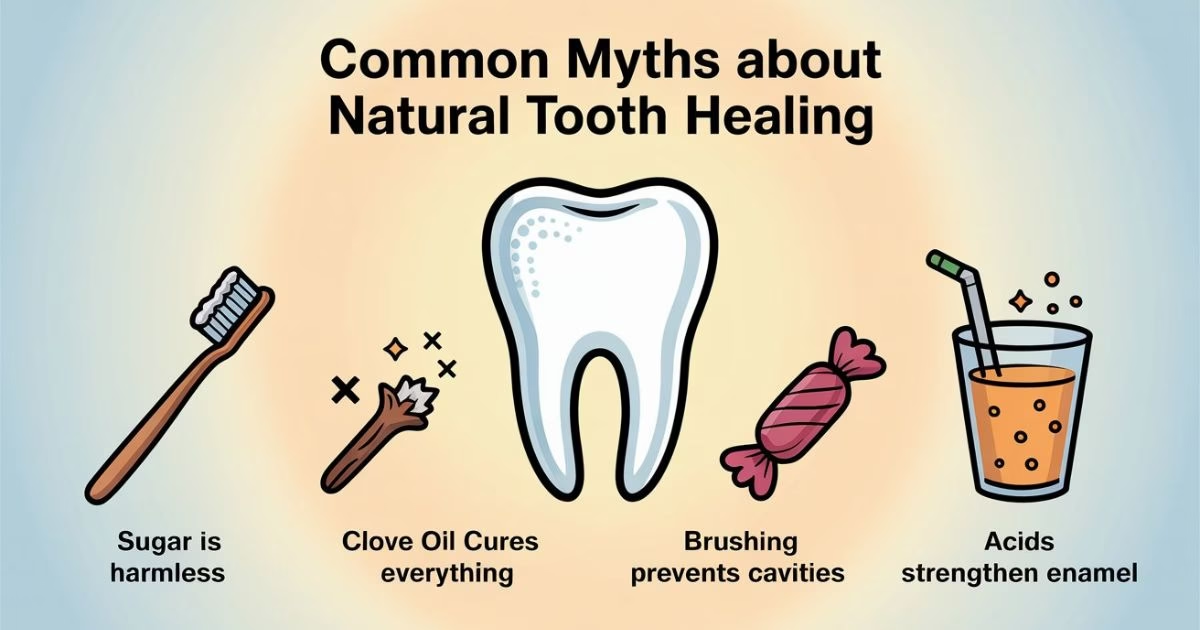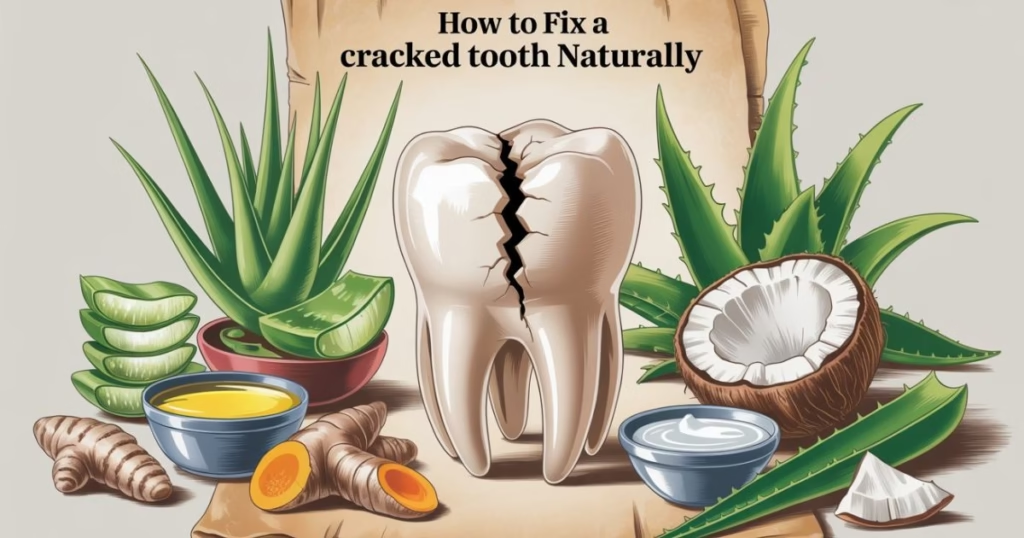Understanding a Cracked Tooth
Before you try any natural fix for How to Fix a Cracked Tooth Naturally, you’ve got to know what you’re dealing with. Not every crack is the same, and understanding the type and cause of the crack helps you choose the right care.
What Causes a Cracked Tooth?
Cracks can come from trauma, grinding your teeth (hello, stress), biting hard things, or even age. Over time, enamel weakens—making your teeth more vulnerable to pressure and changes in temperature.
Types of Cracks in Teeth
There are tiny surface cracks (craze lines), deeper fractures that can cause pain, and even cracks that go into the root. Craze lines usually don’t need treatment, while deeper cracks might.
Symptoms to Look Out For
Think sharp pain when chewing, sudden sensitivity to heat or cold, or swelling near a tooth. Sometimes, cracked teeth don’t hurt until the nerve is involved—so it’s smart to act early.
Why Natural Remedies?
Natural solutions offer a gentle, holistic way to manage dental issues—especially if you’re not a fan of dental drills. They’re not always a complete fix, but they help soothe pain and prevent things from getting worse.
The Risks of Ignoring a Crack
If bacteria slip into the crack, it can lead to infection, abscesses, or even tooth loss. So doing nothing isn’t really an option.
When to Try Natural Methods
Go natural if the crack is small, pain is mild, or you’re in between dentist visits. Natural remedies also work well as supportive care while you’re waiting for professional help.
Immediate Home Care for a Cracked Tooth
These first-response steps don’t “heal” the crack—but they reduce pain, inflammation, and protect the tooth from getting worse.

Rinse with Salt Water
It’s antibacterial and soothing. Swish warm salt water a few times a day to keep the area clean and reduce swelling.
Apply a Cold Compress
Swelling? Pain? Use a cold pack outside the cheek for 10–15 minutes to numb the area and lower inflammation.
Avoid Hard Foods
Hard or crunchy foods can split the crack further. Stick to soft, gentle foods like mashed bananas or yogurt.
Top Natural Remedies to Soothe and Support Healing
Let’s be real—natural doesn’t mean magic. But these tried-and-true remedies offer pain relief, reduce inflammation, and support your body’s healing process.
Clove Oil for Pain Relief
Clove oil has natural numbing powers. Just a dab on the cracked tooth helps block pain fast. Bonus? It also fights bacteria.
Turmeric Paste as an Anti-Inflammatory
Turmeric has curcumin—a natural anti-inflammatory compound. Make a paste with coconut oil and apply gently to the gum line for relief.
Garlic for Antibacterial Benefits
Garlic’s allicin kills germs and calms swelling. Either chew a clove or mash it into a paste and apply to the tooth area.
Oil Pulling with Coconut Oil
Swishing coconut oil helps remove toxins and bacteria. Do it for 15–20 minutes (yes, really), then spit it out. Don’t rinse immediately—let the benefits linger.
Natural Supplements That Support Tooth Strength
You can’t “glue” a crack back together with a pill, but you can strengthen your enamel and gums with the right nutrients.
Vitamin D and Calcium
These work together to rebuild and protect tooth enamel. If you’re not getting enough from food, a supplement can help.
Magnesium and Phosphorus
These minerals help harden enamel and support healthy saliva, which protects teeth. Nuts, seeds, and whole grains are rich in both.
Collagen for Gum and Enamel Health
Collagen keeps your gums firm and helps your teeth stay supported. Think of it as scaffolding for your mouth.
Herbal Remedies for Tooth Health
Herbs can support oral healing, reduce inflammation, and protect against bacteria naturally.
Myrrh and Goldenseal
Used for centuries in oral care, these herbs help cleanse, disinfect, and tighten tissues. You’ll often find them in natural mouthwashes or tinctures.
Licorice Root
It’s not just for candy! Licorice root fights bacteria and may even help prevent tooth decay and gum disease.
DIY Natural Toothpaste for Daily Strengthening
Why use chemicals when you can make a mineral-rich toothpaste at home?

Ingredients and Recipe
Mix together:
- 2 tbsp coconut oil
- 1 tbsp baking soda
- ½ tsp turmeric
- 2–3 drops peppermint oil (for flavor)
Use once daily to gently cleanse and remineralize your teeth.
How Often to Use
Because of the abrasive baking soda, use it just once a day max. Rotate it with a gentler fluoride-free toothpaste to avoid enamel wear.
Read More: Carillas Dentales: The Complete Guide to a Perfect Smile
Healing Cracked Teeth Through Diet
Your teeth are living tissues. What you eat can make a major difference in how fast and well they recover.

Foods That Support Enamel Repair
Cheese, yogurt, leafy greens, wild salmon, almonds, and eggs all deliver key minerals that remineralize enamel and strengthen teeth.
Foods to Avoid
Steer clear of soda, sugary snacks, sour candies, and anything super hard (we’re looking at you, ice chewers). These only widen the crack—literally.
Can Cracks Really Heal Naturally?
It’s the big question, right? Let’s clear it up.
What Science Says
Enamel can’t regenerate completely—but small cracks can be remineralized. Think of it like sealing a pothole, not rebuilding the road.
Realistic Expectations
Don’t expect miracles. Natural healing can ease symptoms and slow progression—but deep cracks still need dental attention.
Preventing Future Tooth Cracks
Once your tooth is on the mend, keep it that way by making smarter choices.
Better Brushing Habits
Use a soft brush, avoid scrubbing, and brush gently twice a day. Hard brushing can actually cause cracks in enamel.
Avoiding Sudden Temperature Changes
No more following hot coffee with an iced soda. That thermal shock stresses enamel and leads to tiny fractures over time.
Natural vs. Professional Care
Let’s keep it honest—nature is powerful, but it has its limits.
When You Need to See a Dentist
If you’ve got deep pain, a visible crack, or swelling—don’t wait. Get it checked. You might need a filling, crown, or root canal.
Complementary Approaches
Use natural remedies as support—not a substitute. They work great alongside professional dental care.
Common Myths About Natural Tooth Healing
Let’s bust a few lies floating around the web.

- Myth: Oil pulling heals cracks.
Truth: It helps remove bacteria but won’t mend a crack. - Myth: Enamel can grow back fully.
Truth: Once it’s gone, it’s gone. But remineralization can strengthen what remains. - Myth: All herbs are safe for teeth.
Truth: Some herbs are abrasive or acidic—always do your research.
Long-Term Maintenance for Tooth Health
Think of your teeth like a garden—they need regular care to thrive.
- Eat mineral-rich foods
- Stay hydrated
- Use gentle oral products
- Don’t skip dental checkups, even if you prefer holistic methods
- Manage stress (it helps prevent grinding!)
Conclusion
Fixing a cracked tooth naturally isn’t a quick fix—it’s a steady journey. You’re calming inflammation, reducing pain, and giving your body what it needs to reinforce its natural defenses. Some cracks can be managed naturally, while others need a professional. Either way, you’re not powerless. With the right care, your smile can stay strong and pain-free.
FAQs
- Can a cracked tooth really heal without a dentist?
Small surface cracks might heal or remineralize with natural care. Deep or painful ones need dental help. - What’s the fastest natural pain relief for a cracked tooth?
Clove oil or a cold compress gives almost immediate relief. - Is turmeric safe to use on gums daily?
Yes, when diluted or mixed into a paste. Just don’t overuse it—it can stain teeth if used excessively. - Can diet alone fix a cracked tooth?
Not entirely, but a nutrient-rich diet strengthens enamel and helps prevent further cracking. - Is oil pulling safe for daily use?
Yes! It’s gentle and great for gum health—but don’t expect it to fix structural issues.

